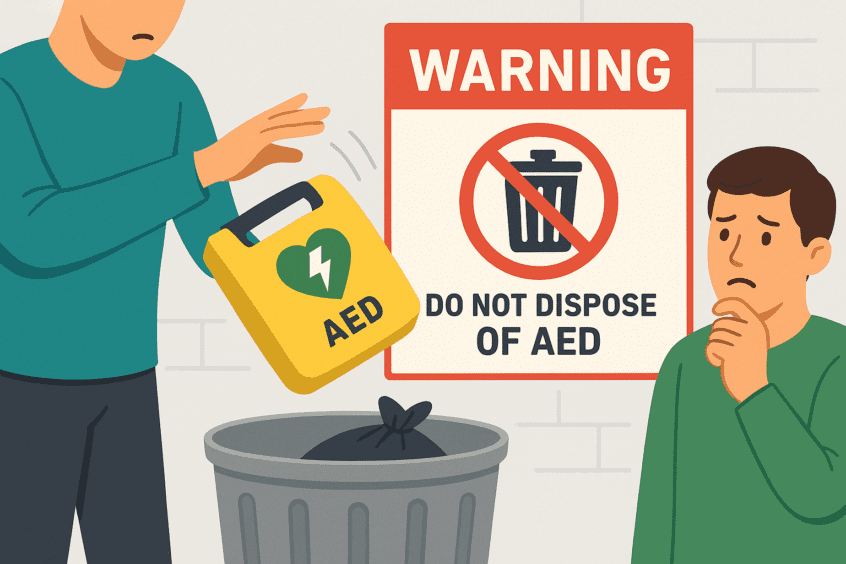The Impact of AED Recycling and AED One-Stop Shop’s

As automated external defibrillators (AEDs) age out of use, more organizations are left wondering how to responsibly handle AED disposal. These devices contain lithium batteries and electronic components that are not only hazardous in landfills but may also be subject to specific disposal regulations. Recognizing this need, AED One-Stop Shop developed a sustainable, cost-effective, and environmentally conscious solution. Their Free AED Recycling Program empowers healthcare providers, schools, businesses, and municipalities to carry out AED disposal with ease and integrity—protecting both people and the planet.
Why Proper AED Disposal Matters
Improper AED disposal can result in serious environmental harm. Most AED units include lithium batteries, which are classified as hazardous waste. If thrown away with regular trash, these components can leak toxic substances or become fire risks. Additionally, accessories like pads and cables often include plastics and metals that do not break down safely in landfills. As technology improves, more facilities are upgrading their devices, making ethical and safe AED disposal an increasingly relevant concern. By prioritizing proper AED disposal, organizations reduce liability, stay compliant with disposal laws, and demonstrate environmental responsibility.
Inside the Free AED Recycling Program
AED One-Stop Shop’s Free AED Recycling Program is designed to make AED disposal simple, secure, and accessible. It accepts a broad range of brands, including ZOLL, LIFEPAK, Philips HeartStart, Cardiac Science, and others. The program covers all recycling and processing costs—customers only pay for ground shipping. Most choose to send in the AED unit, battery, and case, often excluding pads and paperwork to save on weight. Once received, AED One-Stop Shop ensures all items are either properly recycled or repurposed through donation partnerships. With this free program, AED disposal becomes a straightforward and responsible process for any organization.
How to Participate in Safe AED Disposal
Getting started with the Free AED Recycling Program is easy. First, users complete a simple online form and agree to the program’s terms and conditions. AED One-Stop Shop then provides instructions and a shipping address for your AED disposal. It’s important to remove and safely package lithium batteries using plastic bags or bubble wrap, as short-circuiting poses a risk during shipping. Each shipment must include the required lithium battery return label, which is available for download. Once sent, AED One-Stop Shop takes care of the rest, managing the AED disposal process with professionalism and precision.
More Than Just Disposal—A Step Toward Sustainability
Responsible AED disposal doesn’t just protect the environment—it helps communities in need. AED One-Stop Shop works with donation programs that place still-functional units in schools, nonprofits, and underserved areas. When a device can’t be reused, it’s broken down for parts and recycled appropriately, minimizing waste. This circular approach to AED disposal reflects a broader commitment to social and environmental impact. Organizations that choose this route aren’t just discarding equipment—they’re supporting public health, sustainability, and equitable access to life-saving tools.
To learn more and start your AED disposal process today, visit our website for more information and make your next AED disposal simple, secure, and impactful with AED One-Stop Shop.


